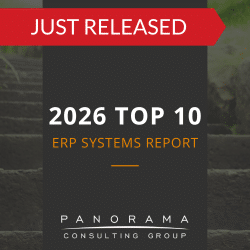While selecting a manufacturing software package can be overwhelming, it can be successful if your team takes the time to define its key business processes and business requirements as part of the software selection project.
Steps for Maximizing Your Manufacturing Software Negotiations
Watch for low implementation estimates and timeframes. At this point in your software selection project, the manufacturing software vendor is still in sales mode. It is, therefore, not in their best interest to give you an estimate of the full scope of the project. Generally, software vendors will omit or underestimate the time and cost associated with software implementations.
Never assume the vendor’s first offer is their best offer. As with any negotiation, manufacturing software vendors typically start by offering list price and reducing if needed. Vendors have several ways to make money with options ranging from ongoing maintenance and professional services to training. Do not be afraid to ask the sales representative to be more aggressive in their pricing, particularly as it relates to software license costs.
Solicit competing offers and use them wisely. Many companies tend to focus on one vendor without at least receiving proposals and conducting a thorough evaluation for other comparable solutions. Competing offers will allow your team to ask the preferred vendor to provide a lower-cost option or to make concessions based on any functionality gaps or concerns.
The manufacturing software selection process is not simply about selecting a software package. It’s also about locating the best software at the best price possible and developing an implementation plan that will make the project successful.













